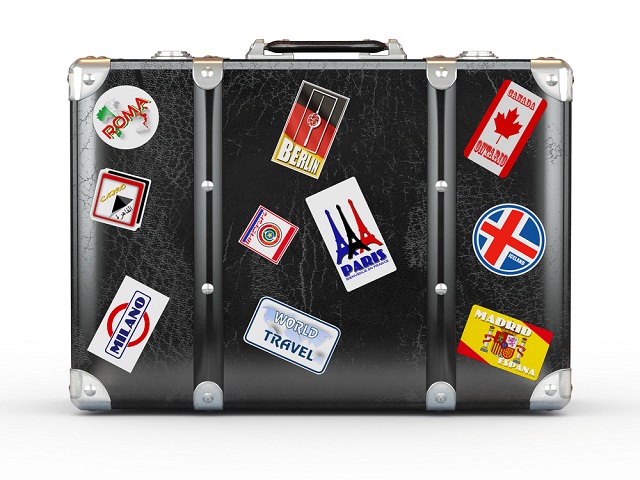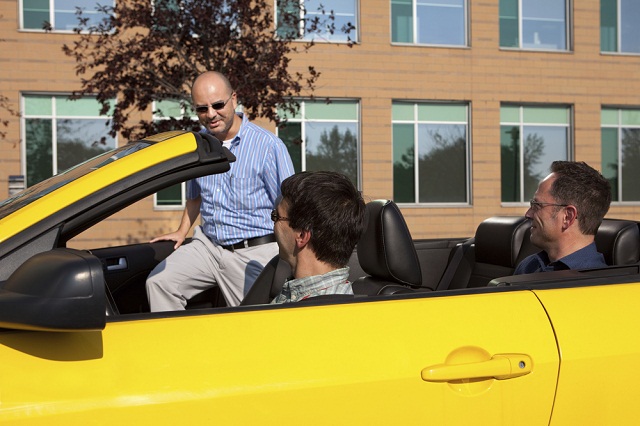Orion Jones
Managing Editor
Get smarter, faster, for success in the knowledge economy. Like us on https://t.co/6ZFWKpoKLi or visit https://t.co/d7r7dG2XOq
To combat a decline in the number of computer science graduates, Microsoft is putting software engineers to work as teachers as part of its Technology Education and Literacy In Schools program.
Flightfox, a new startup, uses its team of experts — many of whom are ordinary people — to find the cheapest fares for a proposed trip, with the winner receiving a finder’s fee.
A number of different factors are involved in the decrease of marriage among Iranians, and some are calling for potentially radical solutions.
Currently being considered: A law that, if passed, would punish anyone who “insults” religious believers or holy sites. The Russian Orthodox Church and other religions are on board, but artists say it will only increase self-censorship.
Entomophagy — the practice of eating insects — is already common in many parts of the world, but as scientists look to bugs as a serious alternate food source, one businessman sees himself as a pioneer.
Two European carpooling sites recently gained the favor of venture capitalists, who point to years of declining car ownership independent of the current economic recession.
At Sunday’s elections, Venezuelans will use one of the most sophisticated and highest-ranked electronic voting systems in the Western Hemisphere. However, suspicions abound.
Facing slow growth in other countries, a variety of airlines and other aviation-related businesses are taking advantage of expanding African economies.
After a certain level of income, money is not very effective in creating happiness. British economist Adair Turner argues that economic growth is not priority-number one.
How is it possible that even in a time when encyclopedic knowledge is available at our fingertips, we still get the facts wrong and often get them wrong in egregious fashion?
The field of neuroeconomics hoped to begin explaining human behavior in ways that could have predicted the financial crash of 2007, but such theories have not been forthcoming.
Despite the seductive fusion of evolutionary principles with modern neuroscience, our search for an ultimate explanation of human behavior is not likely to find solutions any time soon.
The broad philosophical differences between cultures, divided broadly into East and West categories, inform our responses to major life events, including our response to death.
By manipulating the communication abilities of a parasitic virus, geneticists have taken the first steps toward creating a biological Internet where natural processes can be augmented.
A team of medical researchers have created the first fully biodegradable electronic implants. The technology has already been used to help heal wounds before being absorbed by the body.
A collaboration between doctors and engineers at Virginia Tech has resulted in a new way to treat cancer. A needle just 40 microns thick can deliver chemotherapy and nanodrugs.
Despite the conventional wisdom that higher-ups suffer more pressure because they have more responsibility, new research concludes that its more stressful being on the bottom.
Nutritionists say kale—a vegetable in the Brassica family along with broccoli, cauliflower and cabbage—is full of vitamins and antioxidants that help to prevent cancer.
While there are workers that play solitaire as a distraction from work, some businesses find that employees who are allowed to play certain games at work end up performing better.
Fed up with the banking system, one small business owner decided to start his own bank that pays out interest in his store’s goods.
Uniqlo, a Japanese basics retailer, is looking to expand beyond its 800 stores in Japan and take over a share of the American clothing market.
One reporter took to using a variety of time-saving apps that found her rides and hired personal assistants, but she found something greater at stake than the cost.
Dr. Joachim Kohn has devoted his life to research and now it’s paying off. He’s creating new ways to regrow body parts for veterans injured in war.
In order to make a cloud computing network more secure, DeTron is introducing its new QDK chip that cuts out any third party between sender and receiver.
New research in Britain is conducting MRI scans on people who have taken MDMA to understand how it acts on the brain and to possibly help those affected by PTSD.
Amazon, known for selling everything from books to car parts, is venturing into the “green” sector with its website Vine.com
Massive financial institutions regularly make the news but one smaller bank has kept under the radar and outperformed even the largest banks.
Despite slumping sales, Burberry is continuing to use modern technology to help sell their high fashion clothing.
Born from the theory of an MIT physicist, Berkeley scientists have come up with a way to build an eternal clock that, they say, would survive the inevitable “heat death” of the universe.
NASA has agreed to fund a study into whether or not mining asteroids for precious metals and minerals is economically sound. Surely not at the moment, but it might be in the future…





























